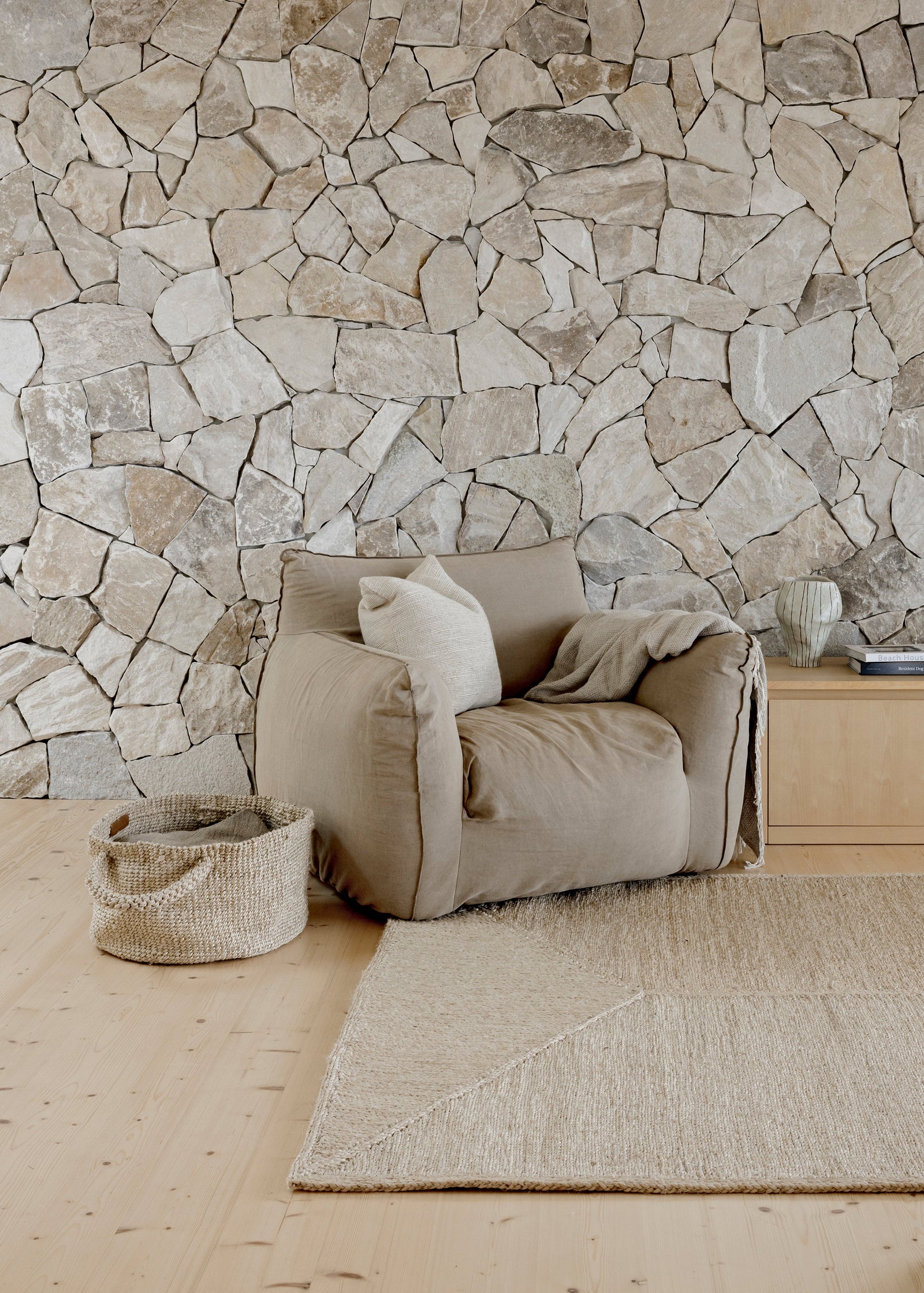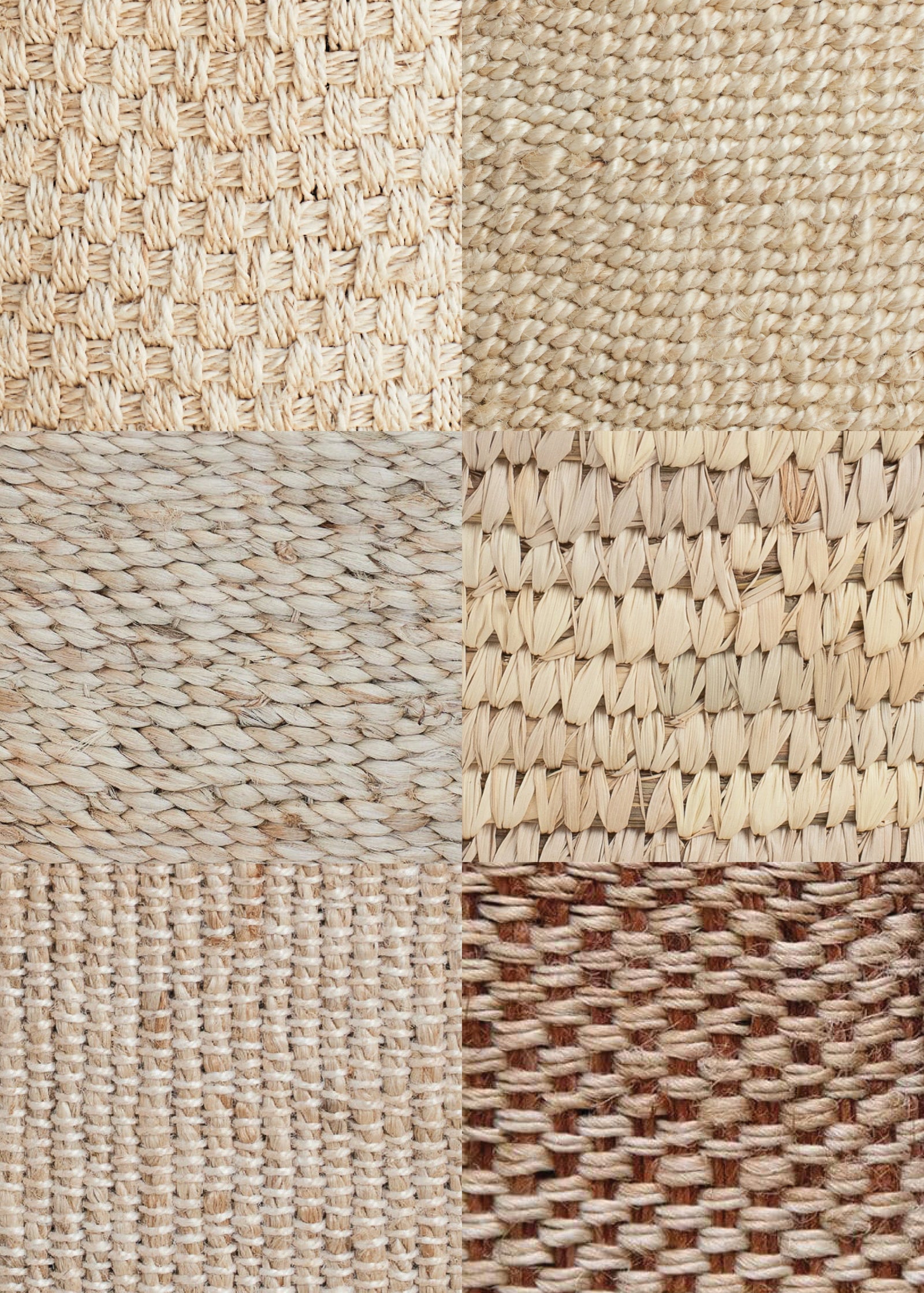Wall Art
Baskets
Rugs
TABLEWARE
Textiles
LIGHTING
DECORATIVE
BAGS
Why Do We Need a Fashion Revolution?

The effects of fast fashion, competitive pricing and a focus on profit were revealed to a global audience on 24 April 2013, igniting the annual call-to-arms known as Fashion Revolution Week. It has been six years since the Rana Plaza building in Dhaka, Bangladesh, collapsed. Housing five garment factories, 1132 workers lost their lives, while more than of their 2500 co-workers were injured in the event. For a few short days, the poor working conditions of many textile and garment workers throughout the world were in the spotlight.
Each April this grass roots movement encourages us to ask, ‘Who made my clothes’? It is hoped that by asking this simple question, people will start to think more about the people behind the products we use every day. Where do they work? How do they make each item? How much are they paid? Where do the materials come from? What happens – to people and the environment – at each step of the production process?
The success of the campaign is based on the premise that our collective voice has the power to make great change. Firstly, by insisting on greater transparency in the supply chains of fashion and textile companies. Fashion Revolution maintains that shining a light on practices previously kept in the dark, we can all play a part in holding brands, retailers, governments and suppliers to account for human rights, working conditions and environmental impact.

And then make change. The ultimate aim is to make fashion a force for good - ‘an industry that values people, the environment, creativity and profit in equal measure’. This vision aligns with much of The Dharma Door’s own focus: to make a difference through design, and ultimately empower as many people as possible out of the cycle of poverty. With much of our collection of bags and totes incorporating hand woven textiles and fibres, we celebrate Fashion Revolution each year by acknowledging the fair trade artisans who make our products. We also take this opportunity to call for greater transparency in the realm of interior textiles, homewares and beyond.
"Demand quality, not just in the products you buy,
but in the life of the person who made it” ~ Orsola de Castro
The Dharma Door was born in Northern India, where founder Shannon Sheedy was motivated by the plight of Tibetan refugee women who had crossed the border and were looking for work. Shannon quickly learnt that fair trade companies can achieve the greatest impact by providing consistent, ongoing orders. This in turn provides job security for artisans and the ultimate ability to empower themselves out of the cycle of discrimination and poverty.
Keen to develop The Dharma Door’s product repertoire to meet this goal, she engaged with a not-for-profit NGO group based in Bangladesh that supported a group of artisans who specialise in woven jute products. After trialling a small collection, the approach proved successful for everyone involved, with some of these artisans having now contributed to the collection for more than 10 years continuously.
Primarily women, the artisans work alongside each other in shared communal spaces. These areas are often used for other purposes, such as schools and storage of raw materials. Often choosing to work on the earth, the women first spread out ground cloths to protect their work, and use the closest available pillar to tie and twist many metres of thread from natural fibres.


These sites are happy places that echo with the sound of animals, people and constant chatter. Children come and go, free to be close to the women, allowing mothers the opportunity to earn an income while taking care of their families and tending to other demands of rural village and farming life. Artisans work directly with the leaders of each NGO group to establish a fair price for each piece, an approach that also allows them necessary flexibility.
Each community is known for a variety of skills and techniques. So The Dharma Door draws its collections from multiple sites throughout the country by engaging with their local NGO group. Techniques are often handed down from generation to generation; this is particularly true in the communities that craft The Dharma Door’s woven and loomed components, which are crafted on traditional wooden or backstrap looms. These woven pieces are carefully sewn and finished in Fair Trade sewing centres that train and support women by providing safe and fair working conditions.


Regular visits to Bangladesh to meet with both artisans and NGO groups provide the necessary confidence and assurance that The Dharma Door’s products are crafted in happy, healthy environments. Our approach also provides a host of other benefits that enable some of society’s most marginalised women to make meaningful change, including training and life skills in health, nutrition and money management; education for boys and girls; savings and loans schemes and support; preservation of traditional techniques; keeping families together by providing ongoing local work; infrastructure; support for sustainable, chemical-free farming; and issues surrounding gender equality.
Fashion Revolution believes that the whole fashion industry needs a radical paradigm shift and that the way that we produce, sell, consume and dispose of clothes needs to be holistically transformed. Transparency helps to reveal the structures of fashion industry so we can better understand how to change this system in a fundamental, long-lasting and positive way.
As a part of a Fashion Revolution Week 2019 The Dharma Door is delighted to introduce some of the talented artisans who make our products. Devoted to maintaining secure, ongoing and fruitful work for these women, we also relish the opportunity to share the supportive working conditions, wages and additional services we have contributed to providing for more than fifteen years.
This April, in addition to asking where our clothes come from, we urge everyone to spread the net a little wider to also ask the questions about the items we use to decorate our homes.
How can you get involved?
1. On social media, ask your favourite brands for greater transparency about their workers and supply chains. Remember to use the hashtag #whomademyclothes or #whomademybag and tag the brand. This will encourage brands to be more accountable, with the ultimate goal of holding brands, retailers, governments and suppliers to account for human rights, working conditions and environmental impact.
2. Support brands - fashion and homewares - that are transparent about the conditions of their workers and makers and who are actively working towards ethical and/or Fair Trade production.
SHOP FAIR TRADE BAGS
Also in Journal
Notify me when available
We will send you a notification as soon as this product is available again.
We don't share your email with anybody












